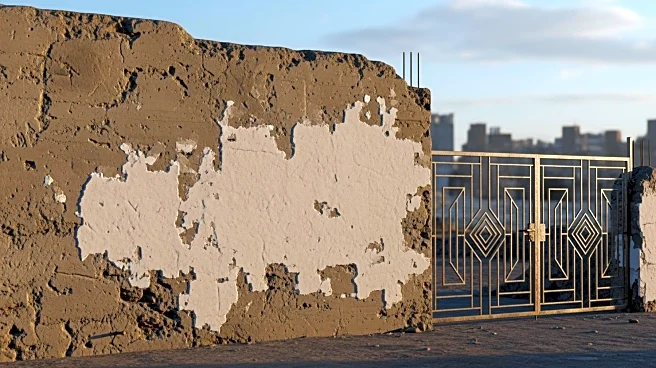What's Happening?
Hamas has reestablished its control over Gaza following a ceasefire, as reported by multiple sources. The group has been regulating prices and levying fees on goods such as fuel and cigarettes, according to local residents and merchants. Despite international
calls for disarmament and a transition to a new administration, Hamas continues to exert influence over the region. The U.S. plan for Gaza, which includes a transitional authority and multinational security force, faces challenges as Hamas remains entrenched. The group has replaced regional governors and politburo members who were killed during the conflict, and continues to pay salaries to its employees, albeit at reduced rates.
Why It's Important?
The reassertion of Hamas control in Gaza has significant implications for the region's stability and future governance. The ongoing influence of Hamas complicates international efforts to establish a new government and disarm the group. This situation affects the humanitarian conditions in Gaza, where residents face high prices and limited income. The U.S. plan for Gaza's future, which aims to establish a transitional authority, is hindered by Hamas' entrenched position. The international community's delay in implementing the plan allows Hamas to strengthen its control, impacting the prospects for peace and reconstruction in the region.
What's Next?
The future of Gaza remains uncertain as international efforts to implement a new governance structure face obstacles. The U.S. plan requires approval from the United Nations and cooperation from various stakeholders, including the Palestinian Authority and Israel. The formation of a multinational security force is underway, but progress is slow. Hamas' continued control poses challenges to the transition process, and the group may continue to govern until an alternative administration is established. The situation requires diplomatic negotiations and consensus among involved parties to move forward.
Beyond the Headlines
The situation in Gaza highlights the complexities of governance in conflict zones and the challenges of transitioning to peace. The entrenched position of Hamas raises questions about the effectiveness of international intervention and the role of local actors in shaping the region's future. The humanitarian impact on Gaza's residents underscores the need for sustainable solutions that address both political and economic dimensions. The delay in implementing the U.S. plan may lead to prolonged instability, affecting regional dynamics and international relations.















